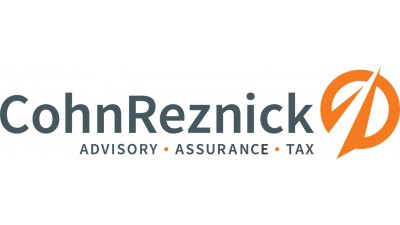18 Months After Tax Cuts And Jobs Act, Proper Tax Planning Is Starting To Pay Off

This tax season, the 2017 Tax Cuts and Jobs Act finally went into effect. Though certain commercial real estate companies face a lower corporate tax rate, real estate investment-oriented companies are also subject to a host of new regulations, such as limitations on business interest expense and excess loss limitations. Even some of the changes intended to help CRE owners, like increased bonus depreciation, place a heavy burden on companies to assess every part of their holdings. But all that analytical work has a silver lining.
Having completed assessments of their portfolios, entities should begin seeing value not just in the form of immediate tax savings, but also in terms of future benefits thanks to the long-term planning they have done for their businesses.
“The Tax Cuts and Jobs Act prompted CRE companies to think critically about their assets and goals, and that analysis will carry forward,” CohnReznick partner Timothy Trifilo said. “The ‘time suck’ of preparing for TCJA is behind us now, and it made entities see the connection between compliance and asset-level forecasting, which will create better tax planning for the future.”
The real estate industry has been preparing for TCJA for a year and a half. Now, the pens are finally hitting the paper, and the tax planning done in 2018 is paying off. Even Trifilo, a tax specialist, said he was surprised by the magnitude and level of effort it took to prepare for these changes and to make the necessary long-term planning decisions afforded by the new tax code.
The most crucial of these decisions for CRE had to do with the new business interest expense limitations, also known as Section 163(j) limitations. Before 2017, when a real estate investment was financed with debt, all the interest on that borrowed capital was generally eligible for deduction annually. But the TCJA limited interest expense deducts up to 30% of an entity’s adjusted taxable income. This limitation is especially disruptive to investors and companies that regularly borrow large amounts of capital, like developers and REITs.
Companies are allowed to make a one-time, permanent election to be considered “real estate companies,” releasing them from interest expense limitation. However, that election comes with its own downside: Real estate companies have to forgo the benefits of bonus depreciation, which could save companies serious sums on construction and renovations and which TCJA made much sweeter.

“We go through the cost-benefit analysis of the election for every building in a company’s portfolio,” Trifilo said. “We make sure our clients appreciate the rules and impacts of depreciation. Because once they make that decision, they’re stuck with it. Whenever you’re asking someone to make a permanent decision, it always includes more thought, more anguish and a deeper dive into what needs to be done.”
Trifilo explained that these conversations go further than just tax planning, into the five- and 10-year plans that clients have for their businesses. Companies need to consider whether they plan to build more or borrow more, whether they have debt coming to maturity or whether they are thinking about refinancing.
CRE entities also need to look at the nature of their assets in general, especially if they have residential rental assets acquired before 2018. Trifilo said these assets are the most impacted by the new depreciation rules, as TCJA changed them from a 27.5-year depreciation schedule to a 40-year depreciation schedule. So while Trifilo has encouraged many clients to take the election out of interest expense limitations, long-term holders of residential rental assets are often better off taking shorter-life depreciation instead.
While some CRE professionals find these conversations exhausting, Trifilo believes they are important.
“I really do think that the critical thinking and attention to detail on an asset-by-asset basis is a positive in the long term,” Trifilo said. “Some people bristle when hearing that, but these are good exercises that will be beneficial down the road.”
Trifilo said he hopes TCJA’s legacy will be for entities to take a holistic view of tax planning. While CRE has gotten very excited about saving on capital gains taxes with opportunity zones, the tax landscape goes beyond any single property or set of properties. Rather than making decisions and worrying about compliance later, Trifilo said companies need to make decisions with tax savings in mind.
Trifilo also said the labor and time spent preparing for this tax season won’t be repeated any time soon.
“For many clients, we went through thousands of lines of depreciable assets that needed to be adjusted, but that work is done now,” Trifilo said. “You may have to live with a lot of decisions for the foreseeable future that you made in the 2018 tax year, but you won’t have to revisit them again next year.”
This feature was produced by Bisnow Branded Content in collaboration with CohnReznick. Bisnow news staff was not involved in the production of this content.

